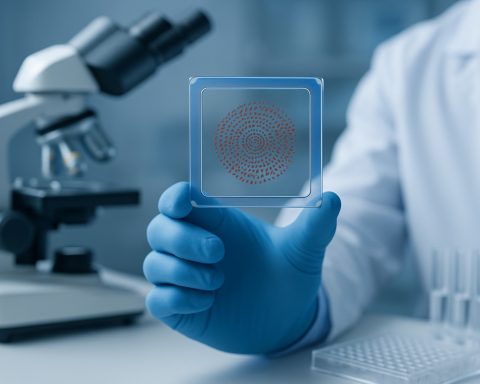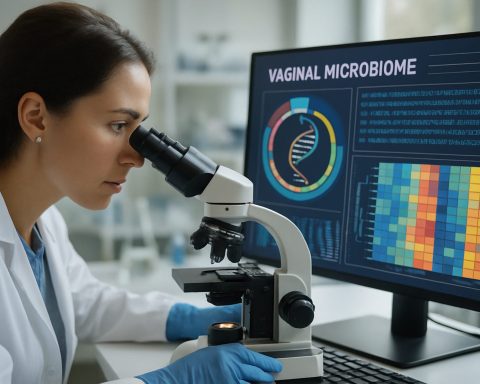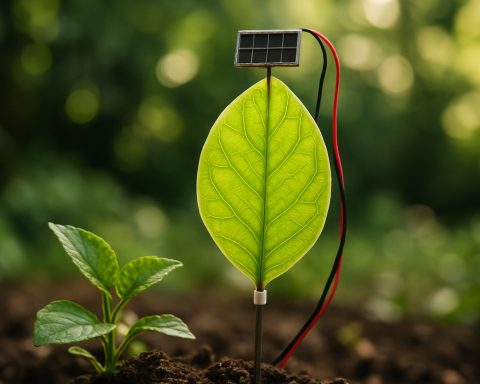- Porsche is leading a multi-phase pilot project to recycle end-of-life EV batteries, transforming them into valuable raw materials.
- The process extracts nickel, cobalt, manganese, and lithium from used batteries, producing 65 tonnes of “black mass” for further refinement.
- This effort aligns with Porsche’s commitment to a closed-loop economy, enhancing sustainability while maintaining high-quality standards.
- Porsche’s recycled battery cells will undergo real-world testing, combining luxury performance with environmental stewardship.
- Anticipating the EU’s 2031 regulations on recycled content, Porsche’s initiative underscores global responsibility amid volatile raw material markets.
- The project’s success reinforces Porsche’s legacy of innovation, merging cutting-edge technology with sustainable luxury.
Beneath the polished surface of sleek design and roaring engines, Porsche is engineering a revolution. The narrative of luxury and innovation at Porsche is pivoting toward sustainability with a multi-phase pilot project that transforms the often-problematic end of a battery’s life into a powerful beginning.
Amidst the verdant tapestry of rolling landscapes in Europe’s industrial heart, the grinding hum of machines uncovers a promising future—transforming discarded high-voltage EV batteries into a treasure trove of raw materials. These materials, which were once locked inside used batteries, hold the keys to future performance: nickel, cobalt, manganese, and lithium. These critical elements are liberated through a mechanical shredding process, reducing the once complex batteries into a granular concoction known as “black mass.”
Imagine this marvel: 65 tonnes of “black mass” have already been extracted, a testament to the project’s potential to redefine luxury car manufacturing. From these granules, aluminum and copper are isolated, while the enriched “black mass” undergoes further refinement, revealing elements of unparalleled purity.
Porsche’s meticulous approach ensures that each rejuvenated element excels in quality—a necessity to uphold the company’s legendary reputation for performance and endurance. As the ghostly remnants of former batteries are reborn into cutting-edge cells, Porsche is charting a bold course toward a closed-loop economy, where waste transforms into wealth.
Steering towards a future where sustainability and luxury coalesce, Porsche is poised to introduce new battery cells into real-world testing. These cells will carry a precise measure of recycled content, proving that premium performance and environmental stewardship can race hand-in-hand.
With a keen eye on the EU’s impending 2031 regulations mandating increased recycled content, Porsche’s initiative is not merely a nod to future compliance but a proactive embrace of global responsibility. In an era of volatile raw material markets, this self-sufficient cycle buffers the brand against the unpredictable rise and fall of geopolitical tides.
The essence of this endeavor pulses through every fiber of Porsche’s sustainability blueprint, emphasizing not only environmental responsibility but also a commitment to leadership in the domain of sustainable luxury. As the project unfolds, Porsche reinforces its legacy—where cutting-edge technology and eco-awareness blend seamlessly into a new narrative of opulence.
This is the horizon of automotive evolution, casting yesterday’s waste into tomorrow’s wonder, driving a transformation that promises to redefine our journey in the world of sustainable mobility.
Porsche’s Pioneering Drive Towards Sustainable Luxury: What You Need to Know
Introduction
Porsche, a brand synonymous with luxury and performance, is setting new benchmarks in the automotive industry by integrating sustainability into its core operations. This article delves deeper into Porsche’s innovative approach to battery recycling and sustainable manufacturing, offering insights into their strategies and future impacts on the market.
How Porsche is Revolutionizing Battery Recycling
Porsche’s pioneering multi-phase pilot project focuses on transforming end-of-life EV batteries into a valuable resource. Here’s how the process works:
1. Mechanical Shredding: Used batteries are broken down into a granular form known as “black mass,” which contains crucial materials like nickel, cobalt, manganese, and lithium.
2. Material Recovery: Aluminum and copper are separated from the granules, while the enriched “black mass” undergoes further refinement to extract pure elements.
3. High-Quality Standards: Recovered materials are processed to meet Porsche’s exacting standards to ensure performance and reliability in new battery cells.
4. Real-World Testing: The new cells, containing a precise amount of recycled content, are set for real-world testing to validate their performance.
Real-World Use Cases and Impacts
– Automotive Industry Trends: By creating a closed-loop recycling process, Porsche is setting a precedent for the automotive industry to follow, promoting sustainable manufacturing practices.
– Regulatory Compliance: Porsche’s initiative positions it ahead of the EU’s 2031 regulations, which will require higher recycled content in automotive batteries. This proactive step is not only about compliance but also about leading industry change.
– Geopolitical and Economic Stability: With a self-sufficient cycle, Porsche mitigates risks associated with raw material supply fluctuations, which are often influenced by geopolitical events.
Pros & Cons Overview
Pros:
– Environmental Benefits: Reduces waste and reliance on raw material extraction, lessening environmental impact.
– Brand Leadership: Strengthens Porsche’s position as a leader in sustainable luxury.
– Economic Incentives: Reduces dependency on volatile raw material markets, offering economic stability.
Cons:
– Initial Costs: High initial investment in recycling technology and processes.
– Technological Challenges: Ensuring recovered materials meet high-performance standards can be challenging.
Market Forecast and Industry Trends
– Rising Demand for Recycled Materials: As sustainability becomes a prime focus, demand for recycled materials in automotive manufacturing is expected to surge.
– Evolution of Battery Technologies: Continuous advancements in battery technology will encourage more efficient recycling techniques and material recovery processes.
Actionable Recommendations
For consumers and businesses looking to integrate sustainability:
1. Support Brands with Sustainable Initiatives: Opt for companies and products that prioritize eco-friendly practices.
2. Stay Informed: Keep abreast of the latest trends and technologies in sustainability to make informed purchase decisions.
3. Advocate for Change: Encourage and support policies that promote recycling and reduced environmental impact.
Conclusion
Porsche’s commitment to sustainability is redefining the landscape of luxury automotive manufacturing. By leading the charge in developing innovative recycling processes, Porsche not only safeguards its legacy but also sets a new standard for sustainable luxury. As the project evolves, Porsche will continue to inspire a transformation in how we perceive and engage with eco-conscious high-performance vehicles.
For more updates on luxury automotive innovation, visit Porsche.










